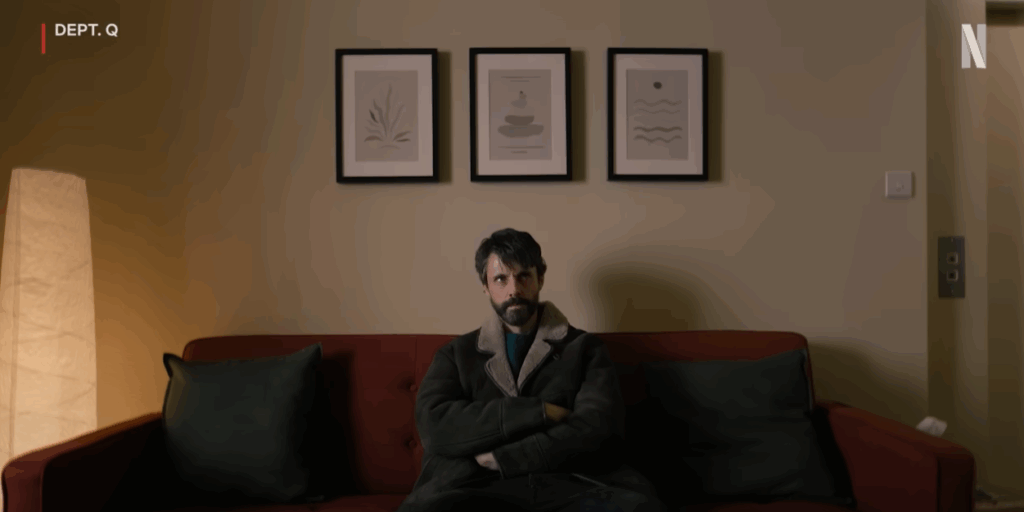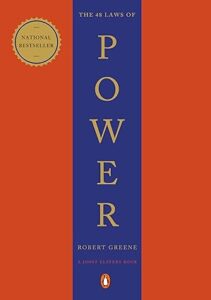Dept. Q 2025 Explained | Recap & Review
A Detailed Recap, Analysis, and Review
Season one kicks off with the story from The Keeper of Lost Causes. At the heart of Dept. Q is Merritt Lingard, a well-known, driven politician who vanished without a trace five years ago during a ferry ride. The official verdict? Suicide. But her brother has never believed that. The case was closed and shelved… until it ends up as the very first file on the desk of Department Q, the newly formed cold case unit. And that’s where things start to unravel.

Carl Mørck (played with a world-weary gravitas that has become a signature of the genre) is initially dismissive. He’s a man haunted by a past operation that left one of his partners paralyzed and the other dead, and he sees this new department as a punishment. His only staff is the enigmatic Akram, a Syrian refugee assigned as his driver and assistant. Akram‘s persistent optimism and surprisingly sharp instincts serve as the perfect foil to Carl’s cynicism.
Together, they re-examine the evidence. They quickly discover inconsistencies in the original investigation, which was rushed and influenced by political pressure. Through a series of painstaking interviews and a fresh look at the timeline, they begin to piece together a horrifying new narrative. Merete didn’t jump; she was abducted.

The season masterfully alternates between Carl and Akram‘s present-day investigation and flashbacks to Merete’s ordeal. We learn she has been held captive for five years in a custom-built pressure chamber, a torture device designed to slowly suffocate its victim over years. Her captor’s goal is not just to kill her, but to make her suffer for a perceived childhood betrayal. The flashbacks are harrowing, showcasing Merete’s incredible will to survive against impossible odds.
The investigation leads Carl and Akram down a path of old family secrets and long-held grudges, culminating in the discovery that Merete’s abductor is a man from her past whom she and her brother wronged as children. The climax is a frantic race against time as they realize Merete is still alive, her oxygen supply in the chamber finally running out. They locate the chamber on an abandoned farm just in time to rescue her, a moment of profound relief in an otherwise bleak narrative.
Character Arcs & Analyses
Carl Mørck: The archetypal noir detective, brilliant, damaged, and deeply cynical. His journey is one of reluctant re-engagement with the world. He is a man who has seen the worst of humanity and carries that burden in every interaction. His brilliance lies in his ability to see the patterns others miss, a skill sharpened by his own pain.
Akram: The heart of the show. Akram is more than just a sidekick; he is Carl’s moral and emotional anchor. His mysterious past (he hints at being a policeman in Syria) and his unwavering optimism provide a crucial balance to Carl’s darkness. He is observant, resourceful, and possesses a quiet strength that often catches criminals, and Carl, off guard.
Merete Lynggaard: Though a victim, Merete is portrayed with immense strength. Her storyline is one of resilience. The flashbacks reveal a complex woman, ambitious and not without flaws, but her fight for survival in the pressure chamber is a powerful testament to the human spirit.
Ending Explained
The ending is both a triumph and a stark reminder of the show’s core themes. Merete is saved, but she is physically and psychologically shattered. Her captor is apprehended, but his motivations reveal a deeply personal and tragic backstory that complicates any sense of simple justice. He sought revenge for a car accident that killed his family, an accident he blames on a young Merete and her brother. While his methods are monstrous, his pain is presented as genuine, forcing the audience to grapple with the cyclical nature of trauma and revenge.

For Carl, solving the case is a form of redemption. It doesn’t erase his guilt, but it reaffirms his purpose as a detective. The final scene shows him and Akram in their basement office, a new case file on the desk. A silent understanding passes between them; Department Q is no longer a punishment but a calling, a place where the forgotten find a voice.
How Did Meritt Stay Kept for 4 Years?
Four years is a lot of time. Keeping someone hidden that long usually leaves traces, noise, supplies, medical issues, emotional breakdowns, escape attempts, neighbor suspicions, something. The show doesn’t dive into how the captor kept all that under control. It just… happened off-screen.
Someone in captivity that long usually shows deeper, more fragmented trauma. Merritt obviously carries scars, but her overall behavior feels a bit “contained” for someone who endured years, not months. That disconnect makes viewers question the timeframe.
Holding someone for four years takes planning, resources, and a lot of luck. The show doesn’t flesh out how he managed it without slipping up once. If we don’t see his methodology, it’s harder to buy into it.
Dept. Q has this tight pace, and sometimes big events get delivered in a way that’s more thriller logic than real-world logic. When a story sets a grounded tone, people expect grounded details but the four-year captivity felt like something you’d accept in a crime novel, not a fully realistic procedural.
That said, the emotion of the story still worked for me. The believability nitpicks don’t break the narrative, they just raise questions the show didn’t have time to answer in detail.
Themes and Real-Life Connections
The core premise of the show. Department Q gives a voice to victims whose cases have been abandoned by a system more concerned with statistics and public relations than with truth.
Every character is haunted by their past, from Carl’s operational trauma to the killer’s childhood tragedy. The show argues that the past is never truly gone and its unresolved conflicts will always find a way to surface.
The relationship between Carl and Akram is the emotional centerpiece. They are two broken men from vastly different worlds who find a shared purpose and an unspoken friendship in the pursuit of justice.
While the plot is fictional, “Dept. Q” taps into the very real phenomenon of cold cases being solved decades later through new technology or a fresh perspective. The show’s critique of political influence in police work also mirrors real-world cases where high-profile investigations have been compromised or prematurely closed due to public pressure or the status of those involved.
Season 2
While Netflix hasn’t officially greenlit Season 2 yet, the show’s creator, Scott Frank, and the main cast have all said they are very eager to make another season. Given the great reviews and how popular it’s been, all signs are pointing toward a renewal.
Hopefully, we won’t have to wait a full three years for it!
Review
Dept. Q has been a hit with both critics and audiences, quickly earning its spot as a standout in the ever-growing noir landscape.
Rotten Tomatoes:
- Tomatometer: 94% (Certified Fresh)
- Critics say: “Anchored by two compelling lead performances and a chillingly intricate plot, Dept. Q is a masterful and haunting addition to the Scandinavian noir canon that will leave viewers breathless.”
- Audience Score: 91%
IMDb:
- Rating: 8.7/10
- User reactions:
- “Finally, a worthy adaptation of the books! The casting for Mørck and Akram is perfect.”
- “Incredibly dark and disturbing, but so well-written you can’t look away.”
- “A slow burn in the best way possible. It’s less about the action and more about the psychology, which is what makes it so terrifying.”
Whether you’re into twisted mysteries or just appreciate sharp writing and brilliant acting, Dept. Q is clearly hitting all the right notes.













Post Comment